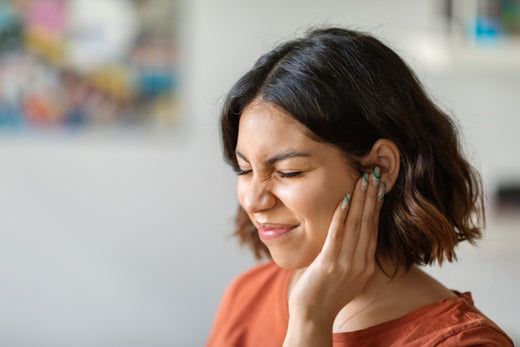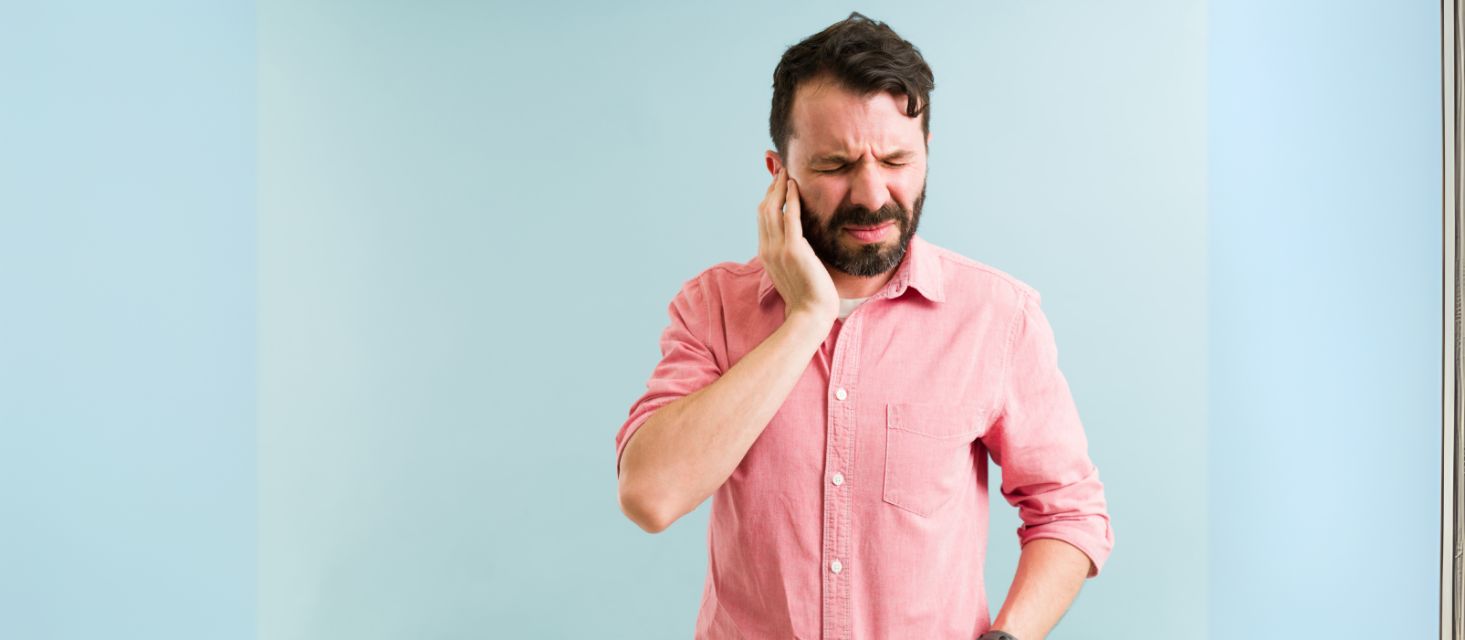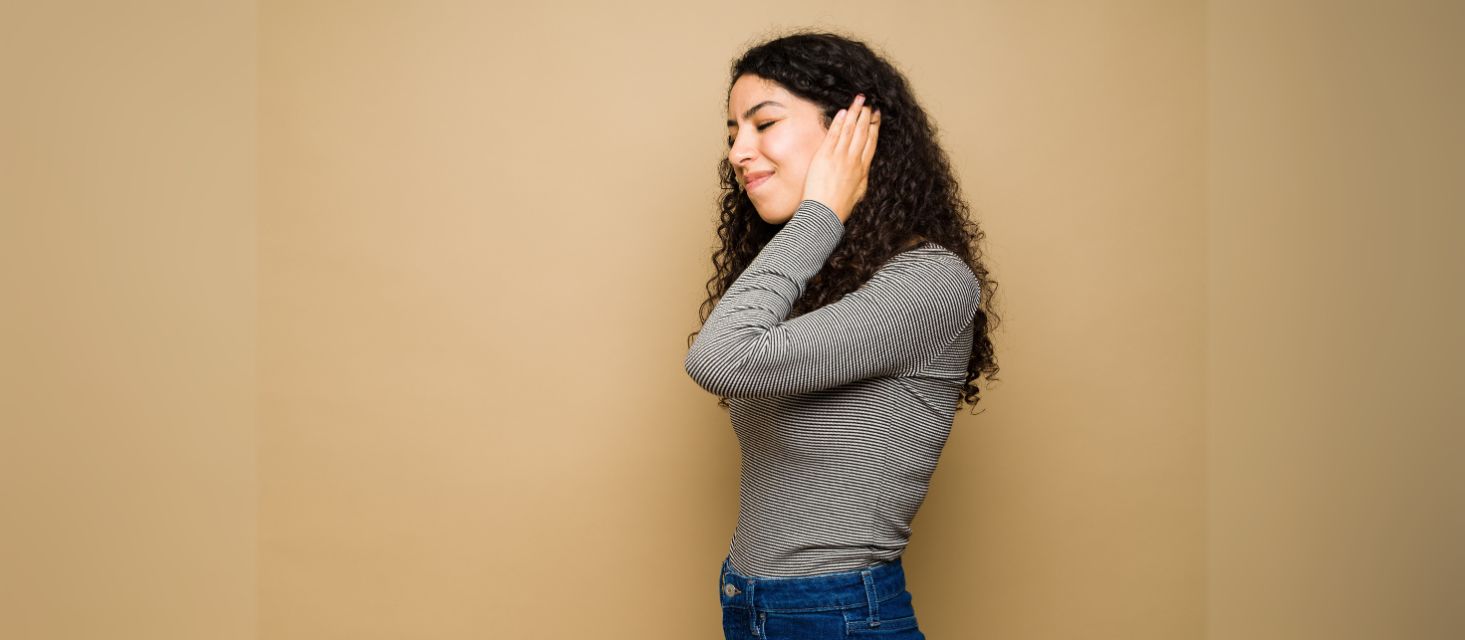Understanding why your ears pop and what you can do about it is key to maintaining good ear health. In this article, we’ll explore the causes of ear popping, when it might be a concern, and how you can safely manage it.
What Is Ear Popping?
Ear popping happens when the pressure inside your ears needs to balance with the pressure outside. This usually occurs when the Eustachian tube opens, allowing air to flow in and out of the middle ear, which helps equalize pressure. When this process happens too quickly, it creates the familiar popping sound in your ears. This can happen in situations like flying in an airplane, diving underwater, or even just driving through mountains.
Common Situations That Cause Ear Popping
Changes in Altitude
When you experience rapid changes in altitude, such as when flying or driving through mountains, the pressure in your ears changes too. This pressure difference can cause your ears to pop as the Eustachian tube tries to balance the pressure between the middle ear and the atmosphere. This is a normal response and usually isn’t a cause for concern.
Traveling by Airplane
Airplane travel is one of the most common causes of ear popping. As the plane ascends or descends, the air pressure in the cabin changes rapidly, leading to ear popping. To help alleviate discomfort, you can try swallowing, yawning, or chewing gum, which encourages the Eustachian tubes to open and regulate pressure more smoothly.
Diving Underwater
When you dive underwater, the pressure increases as you go deeper, which can cause ear popping. This happens because the pressure outside your ear becomes greater than the pressure inside, leading to a need for the Eustachian tubes to equalize the pressure. Divers often use techniques like the Valsalva maneuver to pop their ears and avoid discomfort.
Health Conditions That Contribute to Ear Popping
Eustachian Tube Dysfunction
Eustachian tube dysfunction occurs when the Eustachian tubes don’t open or close properly, leading to a buildup of pressure in the middle ear. This can cause ear popping, discomfort, and even a crackling sound in your ears. Common causes include allergies, sinus infections, and colds, which can lead to swelling and blockage in the tubes.
Colds, Allergies, and Sinus Infections
Colds, allergies, and sinus infections can cause inflammation and excess mucus, which may block the Eustachian tubes. This blockage can lead to ear popping and other symptoms like ear pain and a crackling noise. Managing these conditions can help reduce ear popping and keep your ears healthy.
Ear Infections
Ear infections, especially in children, are another common cause of ear popping. Infections can cause fluid buildup in the middle ear, leading to pressure changes and popping sounds. If you experience frequent ear infections, it’s important to see a doctor to prevent long-term issues like hearing loss.
Is Ear Popping a Sign of a More Serious Condition?
While ear popping is usually harmless, it can sometimes indicate a more serious condition like temporomandibular joint (TMJ) disorder or Eustachian tube dysfunction. If you experience frequent or severe ear popping along with other symptoms like ear pain, hearing loss, or a persistent crackling sound, it’s important to seek medical advice to determine the underlying cause.
How to Safely Unpop Your Ears
Simple Techniques to Relieve Ear Pressure
There are several safe techniques to help pop your ears and relieve pressure. Swallowing, yawning, or chewing gum can help engage the muscles around the Eustachian tubes, encouraging them to open. The Valsalva manoeuvre, which involves pinching your nose and gently blowing with your mouth closed, can also help equalise pressure.
Over-the-Counter Remedies
If you’re dealing with ear popping due to a cold, allergies, or sinus infections, over-the-counter decongestants or nasal sprays can help reduce inflammation and open the Eustachian tubes. These remedies can provide temporary relief and help manage ear popping, especially during activities like flying.
Long-Term Prevention Tips for Ear Popping
Preventing ear popping in the long term involves managing conditions that affect the Eustachian tubes, such as allergies and sinus infections. Avoiding loud noises and protecting your ears in noisy environments can also help maintain ear health. Regular checkups with your doctor can ensure that any underlying issues are addressed early.
When to See a Doctor About Ear Popping
If ear popping becomes frequent, painful, or is accompanied by other symptoms like hearing loss or severe ear pain, it’s time to see a doctor. Persistent ear popping could indicate a more serious condition that requires medical treatment, such as Eustachian tube dysfunction or a middle ear infection.
How Ear Popping Is Diagnosed by Professionals
When you visit a doctor for ear popping, they will likely start with a physical examination and a review of your symptoms. They may also perform a hearing test or imaging to assess the health of your middle ear and Eustachian tubes. These diagnostic tools help determine the best course of treatment for your condition.
Treatment Options for Chronic Ear Popping
Treatment for chronic ear popping depends on the underlying cause. If the issue is related to Eustachian tube dysfunction, your doctor may recommend decongestants, nasal sprays, or even surgery in severe cases. For issues related to ear infections or too much earwax, appropriate medications or ear cleaning such as using ear irrigators might be prescribed. In some cases, hearing aids may be recommended if hearing loss is a factor.
Conclusion: Taking Care of Your Ear Health
Ear popping is a common experience that usually isn’t a cause for concern. However, if it becomes frequent or is accompanied by other symptoms, it’s important to seek medical advice. By understanding the causes and taking steps to protect your ears, you can maintain good ear health and prevent long-term issues.
Frequently Asked Questions
Why Do My Ears Feel Full and Keep Popping?
Your ears might feel full and keep popping due to a blockage in the Eustachian tubes, which help regulate pressure in your middle ear. Common causes include colds, allergies, or sinus infections that lead to excess mucus and inflammation. When the tubes are blocked, pressure builds up, causing that full feeling and frequent popping as the tubes try to equalize the pressure.
Does Ear Popping Mean Ear Infection Is Healing?
Ear popping can be a sign that an ear infection is healing, as it may indicate that the Eustachian tubes are starting to open and allow fluid to drain from the middle ear. However, it’s important to monitor other symptoms like ear pain or hearing loss. If these persist, it’s best to consult a doctor to ensure the infection is fully resolving.
How Do I Get My Ears to Stop Popping?
To stop your ears from popping, try swallowing, yawning, or chewing gum to help open the Eustachian tubes and equalize pressure. You can also perform the Valsalva maneuver, which involves gently blowing with your nose pinched and mouth closed. If your ears keep popping due to congestion from a cold or allergies, using a decongestant or nasal spray might help reduce the symptoms.








Share:
Related Blogs
Candle Ear Treatment: Do Ear Candles Work?
Why Does My Ear Feel Blocked?